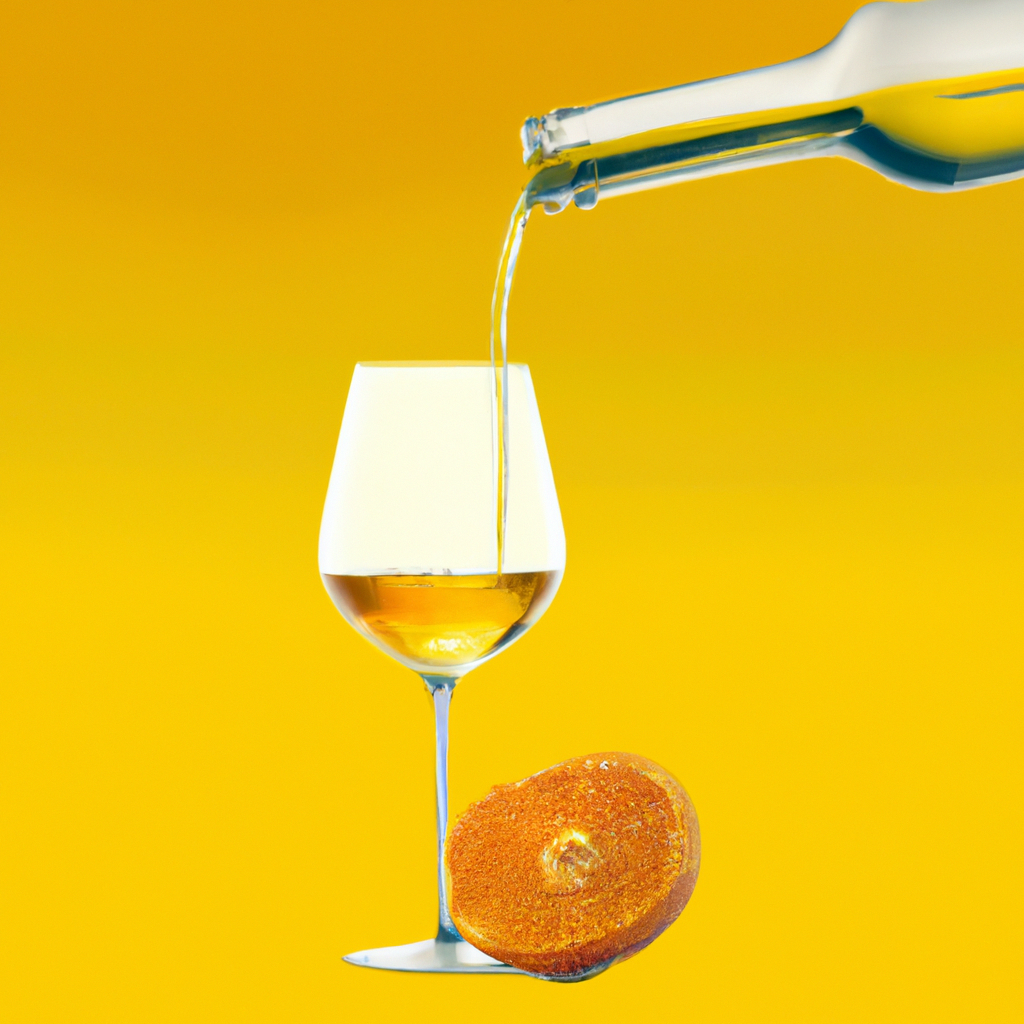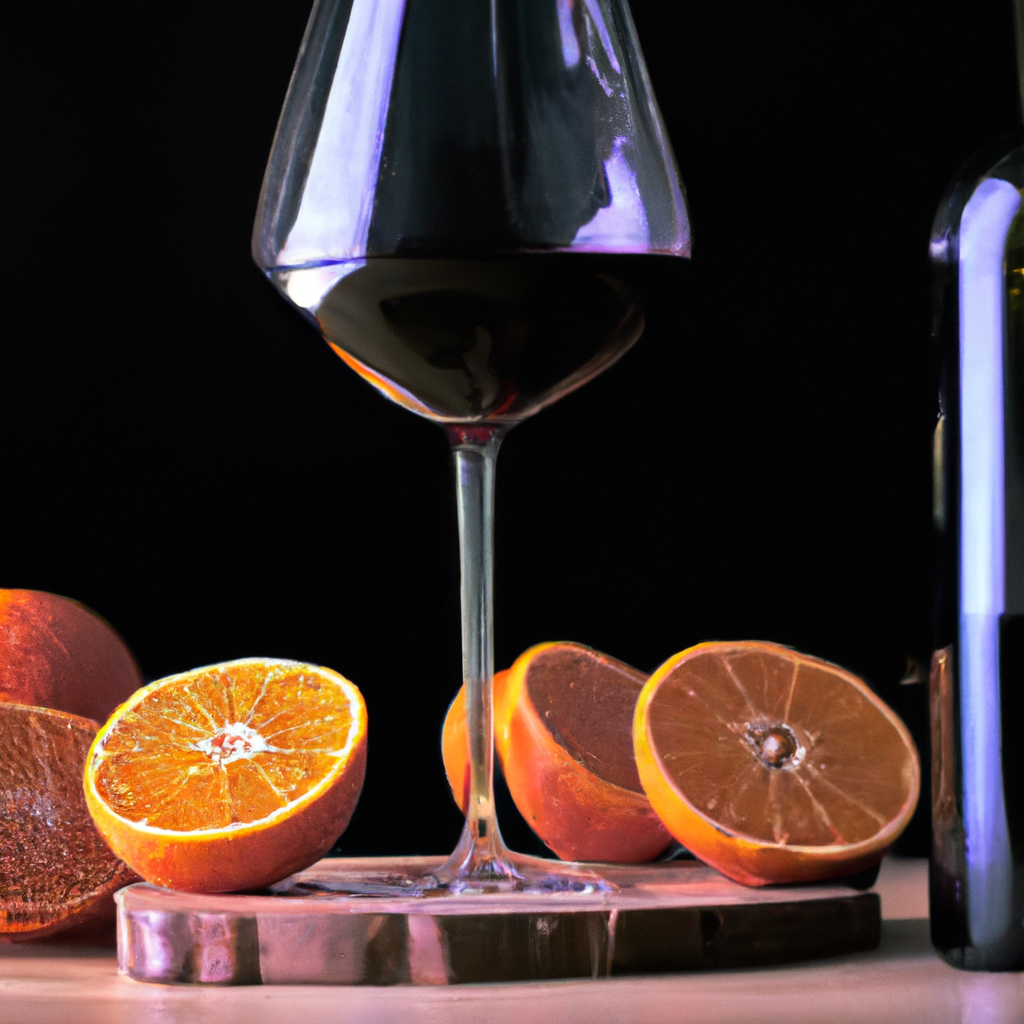
-
Article Summary
- A Simple Guide to Grasping the Concept of Orange Wine
- Key Takeaways
- Introduction: Unveiling the Orange Wine
- The History of Orange Wine
- The Making of Orange Wine
- The Flavor Profile of Orange Wine
- Food Pairing with Orange Wine
- FAQ Section
- 1. Is orange wine sweet?
- 2. How should orange wine be served?
- 3. How long does orange wine last?
- 4. Where can I buy orange wine?
- 5. Is orange wine organic?
- Conclusion: Embracing the Orange Wine Revolution
- Revisiting the Key Takeaways
A Simple Guide to Grasping the Concept of Orange Wine

[youtubomatic_search]
Key Takeaways
- Orange wine, also known as skin-contact white wine, is a type of wine made by fermenting white grapes with their skins.
- The wine’s unique color and complex flavor profile are a result of this extended skin contact.
- Despite its recent surge in popularity, orange wine has a history dating back thousands of years to the world’s oldest wine region, Georgia.
- Orange wines are versatile and pair well with a wide range of foods, making them a favorite among sommeliers.
- While not all wine drinkers may appreciate the bold flavors of orange wine, it offers a unique experience that is worth exploring.
Introduction: Unveiling the Orange Wine
Orange wine, despite its name, is not made from oranges. Instead, it is a type of white wine that gets its distinctive hue from prolonged contact with grape skins during fermentation. This process, known as maceration, imparts a depth of flavor and complexity that sets orange wine apart from its white and red counterparts. This article aims to demystify the concept of orange wine, exploring its history, production process, flavor profile, and food pairing potential.
The History of Orange Wine
While orange wine may seem like a recent trend, its roots trace back over 8,000 years to the country of Georgia. Here, winemakers would ferment white grapes in large clay vessels called qvevri, buried underground to maintain a consistent temperature. The skins, seeds, and stems were left in contact with the juice, resulting in a robust, amber-hued wine. This ancient winemaking tradition has been preserved in Georgia and has inspired the modern resurgence of orange wine.
The Making of Orange Wine
The production of orange wine begins much like that of white wine, with the harvesting and pressing of white grapes. However, instead of removing the skins immediately after pressing, as is common with white wine, the skins are left in contact with the juice for days, weeks, or even months. This extended maceration period allows for the extraction of color, tannins, and flavors from the skins, resulting in the wine’s characteristic amber color and complex taste.
The Flavor Profile of Orange Wine
Orange wines are known for their bold and diverse flavor profiles. They can range from light and zesty with notes of citrus and stone fruit, to rich and savory with flavors of honey, nuts, and dried fruit. The tannins extracted during maceration give orange wines a structure and mouthfeel more akin to red wines. This complexity can be a surprise to those expecting a typical white wine experience, but it is precisely this uniqueness that has captivated the interest of wine enthusiasts worldwide.
Food Pairing with Orange Wine
Thanks to their robust flavors and tannic structure, orange wines are incredibly versatile when it comes to food pairing. They can stand up to hearty meat dishes, complement spicy foods, and even pair well with tricky ingredients like artichokes and asparagus. This versatility makes orange wines a favorite among sommeliers and a fascinating addition to any dining experience.
FAQ Section
1. Is orange wine sweet?
While the flavor profile of orange wine can vary greatly, most are dry rather than sweet. The perception of sweetness may come from the rich, fruity flavors extracted during maceration.
2. How should orange wine be served?
Orange wine should be served slightly chilled, similar to a red wine. This allows the complex flavors to shine without being masked by excessive cold.
3. How long does orange wine last?
Thanks to the tannins and acidity extracted during maceration, orange wines can often age well for several years. Once opened, a bottle can typically last for a few days if properly stored.
4. Where can I buy orange wine?
Orange wine can be found in many wine shops and online retailers. It is also increasingly being featured on restaurant wine lists.
5. Is orange wine organic?
Many orange wines are made using organic or biodynamic methods, but this is not a requirement. As with any wine, it’s best to check the label or ask the producer for more information.
Conclusion: Embracing the Orange Wine Revolution
Orange wine, with its rich history, unique production process, and complex flavor profile, offers a fascinating alternative to traditional white and red wines. While its bold flavors may not appeal to everyone, those who embrace the orange wine revolution will discover a world of wine that is as diverse as it is intriguing. Whether you’re a seasoned wine connoisseur or a curious beginner, orange wine is a journey worth embarking on.
Revisiting the Key Takeaways
- Orange wine is a type of white wine made by fermenting white grapes with their skins, resulting in a unique color and complex flavor profile.
- The tradition of making orange wine dates back thousands of years to Georgia, the world’s oldest wine region.
- Orange wines are versatile and pair well with a wide range of foods, making them a favorite among sommeliers.
- While not for everyone, orange wine offers a unique wine-drinking experience that is worth exploring.
[youtubomatic_search]






